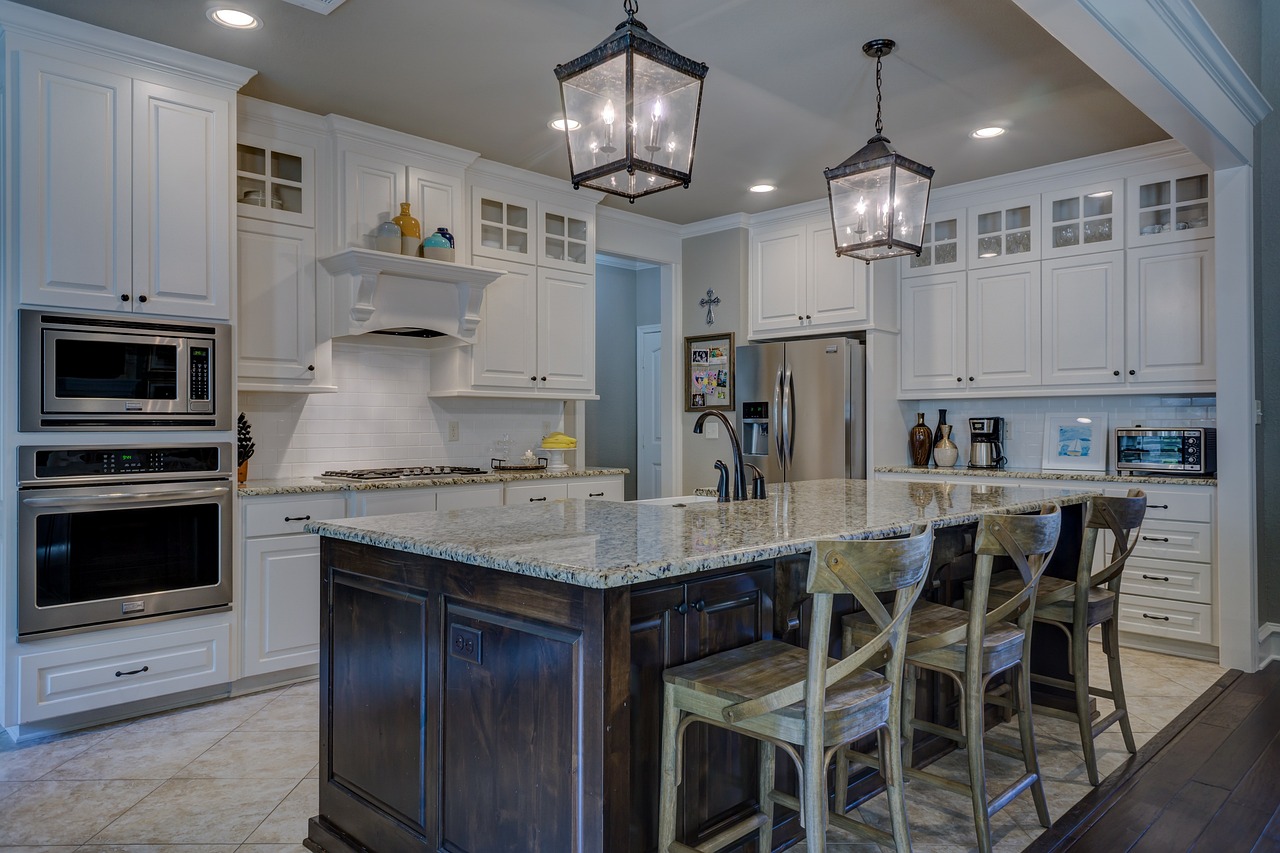Looking to buy a home in Florida? You’re in luck! With its sunny climate, beautiful beaches, and vibrant cities, Florida is a popular destination for those seeking their dream home. Whether you’re a first-time buyer or experienced investor, navigating the real estate market can be overwhelming. But fear not, as I’ll guide you through the process and provide valuable insights along the way.
One of the key factors to consider when buying a home in Florida is location. The state offers a diverse range of options, from bustling urban areas like Miami and Orlando to serene coastal towns like Naples and Sarasota. Each region has its own unique charm and attractions, so it’s important to narrow down your preferences before beginning your search.
Another crucial aspect to keep in mind is the local housing market conditions. Currently, Florida’s real estate market is experiencing steady growth with an increasing demand for homes. This means that competition among buyers may be fierce in certain areas. It’s essential to stay informed about pricing trends and act swiftly when you find a property that meets your criteria.
In my upcoming articles, I’ll delve deeper into these topics and provide expert advice on finding the perfect home in Florida. From understanding financing options to navigating legal procedures, I’m here to equip you with all the knowledge you need for a successful purchase. So get ready to embark on this exciting journey of homeownership in the Sunshine State!
Finding the Right Neighborhood in Florida
When it comes to buying a home in Florida, one of the most crucial aspects is finding the right neighborhood. With its diverse cities and communities, Florida offers a wide range of options to suit different lifestyles and preferences. Here are some key factors to consider when searching for your ideal neighborhood:
- Location: The first thing to think about is the location that best fits your needs. Whether you prefer a bustling city center or a quiet suburban area, Florida has it all. Consider proximity to amenities such as schools, shopping centers, parks, and medical facilities.
- Safety: Ensuring the safety of your family and property is paramount. Research crime rates in potential neighborhoods using reliable sources like local police departments or online databases. Look for areas with low crime rates and active community watch programs.
- Amenities: Assess what amenities are important to you and your lifestyle. If you enjoy outdoor activities, look for neighborhoods with parks, trails, or nearby beaches. For those who prefer cultural attractions or dining options, consider areas with museums, theaters, and diverse restaurant scenes.
- Schools: If you have children or plan on starting a family soon, researching the quality of schools in the area is essential. Look for highly rated public or private schools within your desired neighborhood.
- Affordability: Set a budget early on and determine which neighborhoods align with your financial situation. Keep in mind that housing prices can vary significantly depending on location and demand.
- Future Development: Consider any upcoming development plans that might impact the value or character of the neighborhood you’re interested in. This could include new commercial centers or transportation infrastructure projects.
7.Community Atmosphere: Visit potential neighborhoods at different times of day to get a sense of their atmosphere and community vibes.Try talking to residents if possible; they can provide valuable insights into daily life in the area.
Remember that finding the perfect neighborhood may involve compromises, but by carefully considering these factors, you can increase your chances of finding a place that suits your needs and lifestyle. Happy house hunting!
Understanding the Florida Real Estate Market
When it comes to buying a home in Florida, understanding the real estate market is crucial. Here are some key points to help you navigate this dynamic and competitive market:
1. Diverse Property Options: The Florida real estate market offers a wide range of property options, from luxurious beachfront condos to spacious suburban homes. Whether you’re looking for a retirement haven or a family-friendly neighborhood, there’s something for everyone.
2. Strong Demand: Florida consistently attracts buyers from all over the country and even internationally. The state’s warm climate, beautiful beaches, and vibrant lifestyle make it an appealing destination for both primary residences and vacation homes.
3. Seasonal Fluctuations: The Florida real estate market experiences seasonal fluctuations due to its popularity as a winter retreat. During the peak season (typically between November and April), demand tends to be higher, leading to increased competition among buyers.
4. Affordability Factors: While certain areas in Florida can be quite expensive, there are also affordable options available throughout the state. Factors such as location, proximity to amenities, and property size can greatly impact affordability.
5. Local Regulations: It’s important to familiarize yourself with local regulations when buying property in Florida. Each county may have its own rules regarding zoning restrictions, building permits, and homeowner associations (HOAs). Consulting with a local real estate professional can help ensure compliance with these regulations.
In summary, understanding the dynamics of the Florida real estate market is essential when considering purchasing a home in this sunny state. With diverse property options, strong demand year-round but particularly during peak seasons, affordability factors across different areas, and varying local regulations; working with a knowledgeable agent who specializes in the area can help guide you through the process smoothly.
| Key Points |
| Diverse Property Options |
| Strong Demand |
| Seasonal Fluctuations |
| Affordability Factors |
| Local Regulations |
Working with a Real Estate Agent in Florida
When it comes to buying a home in Florida, working with a real estate agent can be incredibly beneficial. As someone who has navigated the housing market in this sunny state, I can attest to the value that a knowledgeable and experienced agent brings to the table.
Here are a few reasons why you should consider working with a real estate agent when buying a home in Florida:
- Local Expertise: A reputable real estate agent will have an in-depth understanding of the local market trends, neighborhoods, and amenities available throughout Florida. They can provide valuable insights into which areas align with your preferences and budget.
- Extensive Network: Real estate agents often have access to an extensive network of other professionals involved in the home-buying process, such as lenders, inspectors, and attorneys. This network can streamline your journey towards homeownership and ensure that you’re connected with trusted individuals every step of the way.
- Negotiation Skills: Buying a home involves negotiations, from price offers to contingencies. A skilled real estate agent knows how to navigate these negotiations on your behalf while keeping your best interests at heart. They can help secure favorable terms and guide you through potential pitfalls.
- Time-Saving: Searching for properties on your own can be time-consuming and overwhelming. By partnering with an agent, you’ll gain access to their resources, including comprehensive listing databases and tailored property recommendations based on your preferences. This saves you valuable time by narrowing down options that match your criteria.
- Peace of Mind: Purchasing a home is one of life’s biggest financial decisions; having an expert by your side provides peace of mind throughout the process. A dedicated real estate agent will handle paperwork, deadlines, and any unexpected challenges that may arise along the way – allowing you to focus on envisioning yourself in your dream Florida home.
In conclusion, working with a real estate agent when buying a home in Florida can streamline the process, provide valuable insights, and ensure that you make informed decisions. Their local expertise, extensive network, negotiation skills, time-saving abilities, and overall guidance make them an invaluable asset on your journey to homeownership in the Sunshine State. So don’t hesitate to enlist the help of a trusted real estate agent to guide you through this exciting adventure!
Determining Your Budget and Financing Options
Introduction

When it comes to buying a home in Florida, one of the most important aspects to consider is your budget and financing options. Understanding how much you can afford and finding the right financing method will greatly impact your ability to purchase a home that meets your needs. In this section, I’ll guide you through the process of determining your budget and exploring various financing options.
Assess Your Financial Situation
Before diving into the housing market, it’s essential to assess your financial situation. Take a close look at your income, expenses, savings, and any outstanding debts. This will give you a clear picture of what you can comfortably afford for monthly mortgage payments.
Set a Realistic Budget
Based on your financial assessment, it’s time to set a realistic budget for buying a home in Florida. Consider factors such as down payment amount, closing costs, property taxes, insurance premiums, and maintenance expenses. Remember that owning a home involves more than just mortgage payments.
Explore Financing Options
Now that you have an idea of how much you can spend on housing costs each month, it’s time to explore different financing options. Here are some common methods used by homebuyers in Florida:

- Traditional Mortgage: This is the most common option where you borrow money from a lender and repay it over an agreed period with interest.
- FHA Loan: Backed by the Federal Housing Administration (FHA), these loans require lower down payments but come with specific eligibility criteria.
- VA Loan: Available exclusively for current or former military personnel and their families, VA loans offer favorable terms such as no down payment or private mortgage insurance requirement.
- USDA Loan: If you’re looking at rural areas in Florida, USDA loans provide low-interest mortgages for eligible individuals or families.
- Jumbo Loan: For higher-priced properties exceeding conventional loan limits, jumbo loans offer flexible borrowing options.
Remember to compare interest rates, loan terms, and additional fees associated with each option. Consulting with a mortgage professional can help you make an informed decision.

